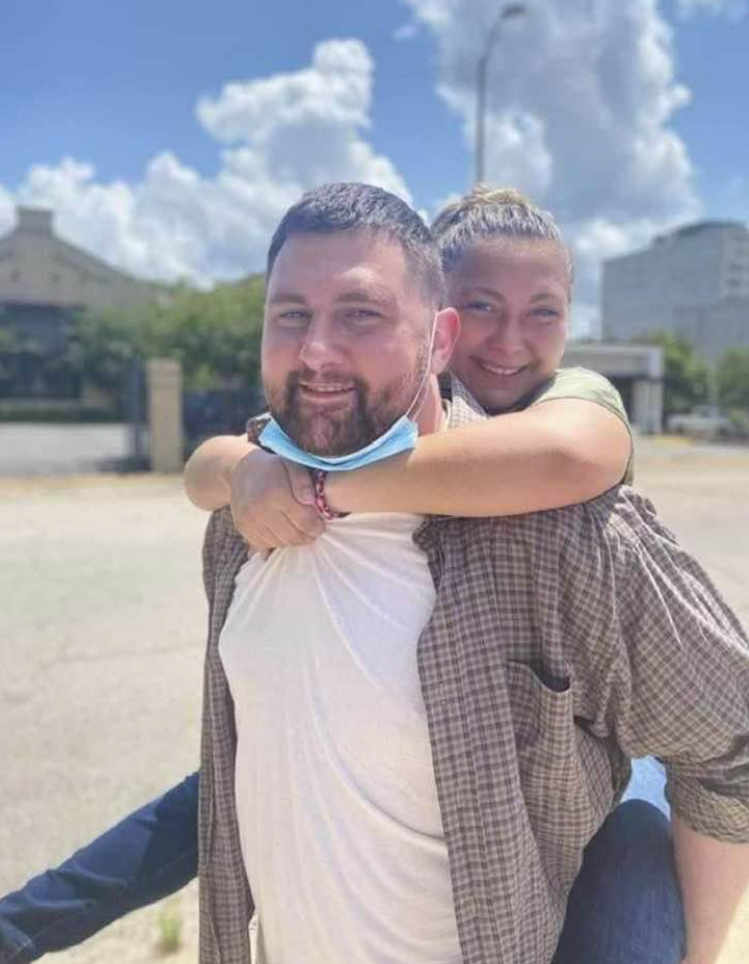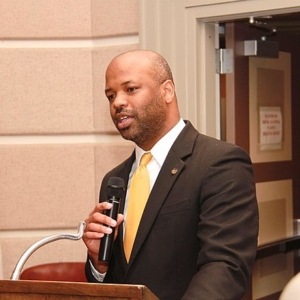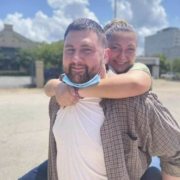By Eddie Burkhalter, Appleseed Researcher

Klifton Adam Bond (source Facebook)
Just 22 days after friends of Klifton Adam Bond’s family spoke to the Legislative Joint Prison Oversight Committee about Bond’s injuries following a severe beating, Mr. Bond was found dead in his cell at St. Clair Correctional Facility.
For lawmakers who listened to those pleas for help, the death of this 38-year-old man should be yet another call to push for meaningful oversight of the Alabama Department of Corrections (ADOC), which continues to prove itself incapable of protecting the incarcerated from violence and death.
Mr. Bond was attacked on Nov. 6, 2023 at Donaldson Correctional Facility and remained in a hospital intensive care unit for 12 days, according to a lawsuit filed on behalf of his mother, as reported by Alabama Daily News. Doctors performed brain surgery on Mr. Bond and told the family he’d require extensive rehabilitation, a friend of the family told the prison oversight committee. Instead, Mr. Bond was moved to St. Clair prison on Jan. 3, 2024 and was found unresponsive in his cell the next day, according to ADOC.
It’s unclear how he died and Appleseed is working to learn more, but in social media posts the family makes clear they believe it was a homicide. The lawsuit alleges that Mr. Bond had been fearful for his life in the days leading up to his death, and that several officers wanted to retaliate against Mr. Bond for his effort to get other incarcerated people medical care.
Barbara Ann Turner, a friend of Mr. Bond’s family, spoke to lawmakers in December at the Joint Prison Oversight Committee meeting, and pleaded for action. The committee’s annual public hearing is statutorily mandated, and while all six lawmakers on the committee attended, there was no one from the Department of Corrections present. “He was beaten with a pipe, he was stabbed all over his body,” Ms. Turner told the lawmakers, noting that it took intervention from a state senator to get confirmation from the prison’s warden that Bond had been assaulted and was being treated at a hospital.
“It’s never been worse.”
Just hours after Mr. Bond’s January 4th death, members of the Alabama Joint Contract Review Committee met in Montgomery and heard a request from an ADOC employee to approve a contract for court-ordered oversight of the department. That oversight is connected to a long-running lawsuit over mental health care in prisons, and the reports drafted by the external monitors aren’t currently made public.

State Representative Chris England
Representative Chris England, D-Tuscaloosa, a member of the committee, told Mandy Speirs, assistant general counsel for the Alabama Department of Corrections, of the hundreds of emails he regularly receives from families of incarcerated people describing the violence and death, and pleading for help. “We actually had a meeting here in this room last month of the Prison Oversight Committee, where some of the same people who were sending the emails came to talk to us about some of the horrors they’re experiencing in our prison system,” Rep. England said. “And unfortunately, no one from the Department of Corrections showed up.”
Rep. England asked if the reports created by those external monitors could be released to the committee, to which Ms. Speirs responded that she would determine whether that was possible. He also questioned whether the committee should create additional oversight of ADOC which could give an “unbiased report.”
“Not only what’s going on inside the facilities but what the Department of Corrections is doing to address them, but something has got to give because it’s really getting out of control,” Rep. England said.
“I will say, and I understand, but to make a small defense is that there are two sides to every story and the DOC…for every email that you have, I’m sure we have information for that,” Ms. Speirs said.
Appleseed reached out to Gov. Kay Ivey’s office with questions about executive branch responses to the crisis, but has received no response. While select lawmakers have been hearing from impacted families and speaking out about the problems, there have been no public statements or explanation for the increasingly deadly prison conditions from the Administration in charge of running prisons. “The Governor’s Office is pretending that nothing is wrong,” Rep. England told Appleseed. “The Executive Branch is in control and responsible for the day to day operations of the prison system and it’s never been worse.”
It remains unclear what the “other side” is to the frequent cases of individuals being beaten to death while in custody of the state’s largest law enforcement agency, including instances where correctional officers are involved. The story of the beating death of Rubyn Murray, 39, who had served 19 years of a 20-year sentence for robbery, is one of a correctional officer allegedly using his authority to help end the life of a man he was paid to keep alive. D’Marcus Sanders, then an ADOC sergeant at Elmore Correctional Facility, is charged with murder in connection with Mr. Murray’s death in July. According to court records, Mr. Sanders unlocked Mr. Murray’s cell door and allowed two other incarcerated men to enter and beat Mr. Murray, causing serious injuries that later resulted in his death. The Alabama Board of Pardons and Parole denied parole for Mr. Murray in February of 2021. His conviction stemmed from a robbery of a Montgomery convenience store in which $125 was stolen; no one was injured, according to court records.
Alabama taxpayers will pay the cost to defend Mr. Sanders in court after an Elmore County District judge approved an affidavit of hardship filed on behalf of Mr. Sanders and declared the former correctional officer indigent.
State officials have been provided detailed accounts of unconstitutionally dangerous prison conditions for the last five years, yet the violence only increases. The federal government in December 2020, sued the state and the Department of Corrections alleging that the state “fails to provide adequate protection from prisoner-on-prisoner violence and prisoner-on-prisoner sexual abuse, fails to provide safe and sanitary conditions, and subjects prisoners to excessive force at the hands of prison staff.” That lawsuit is scheduled for trial in November, 2024.
“The most brutal meeting I’ve been in”

State Senator Dan Roberts
Senator Dan Roberts, R-Mountain Brook, is chair of the Legislature’s Contract Review Committee and a member of the Joint Prison Oversight Committee. Sen. Roberts spoke to Ms. Speirs during the Contract Review meeting. “That was the most brutal meeting that I’ve been in since I’ve been elected,” Sen. Roberts said of the Dec. 13, 2023, Prison Oversight meeting, where fourteen Alabama families and advocates spoke to lawmakers about Alabama’s broken prison system.
Among them was 17-year-old MaKayla Mount, whose father, Christopher Mount, was brutally beaten and strangled to death inside a suicide cell at Easterling Correctional Facility after being placed there with another man. “When you see your dad for the first time in 10 years and half of his face is almost gone because he was beaten, it does something to you,” Ms. Mount told committee members.

MaKayla Mount holds an urn containing her father’s ashes at the Prison Oversight Committee’s public hearing.
Appleseed is awaiting ADOC’s official count of prison deaths during 2023, but the number is expected to set a record for a second straight year. ADOC opened investigations into 247 deaths from Jan. 1 until Sept. 30, the last date for which the department has made that data available in ADOC’s quarterly reports.
If prison deaths during the last three months of the year remained on pace, Alabama prisons would have seen more deaths last year than ever. Alabama prisons saw a 34 percent increase in deaths between 2021 and 2022, according to the federal data, although the U.S. Department of Justice’s 252 deaths in 2022 is less than what Appleseed and The Montgomery Advertiser confirmed through the Alabama Department of Corrections to be 270 deaths that year, which would put the increase at 43 percent.
The death rate in Alabama prisons has climbed to five times the national average. Alabama’s prisoner mortality rate is 1,370 deaths per 100,000 people, compared with a national average of 330 deaths per 100,000, according to the U.S. Department of Justice Bureau of Justice Statistics.






Leave a Reply
Want to join the discussion?Feel free to contribute!